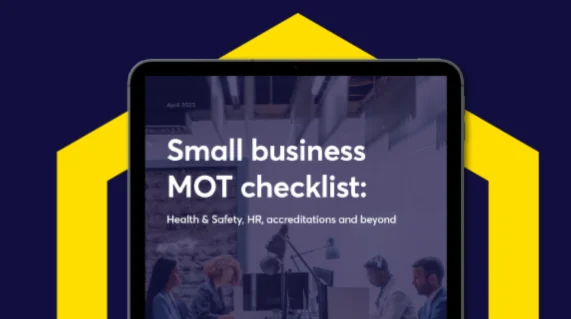Apprentices: must-knows for businesses
We know that employing apprentices comes with a whole host of complications – from pay to working hours to contracts.
Our experts have put together a guide covering all the basics you need to know about hiring apprentices, including your legal obligations, the most common questions asked around apprentices, and how to make sure you’re ticking all your boxes.
An apprentice is an individual aged 16 or over who combines working with studying to gain skills and knowledge in a specific area or trade. All apprentices must be employed by the Employer and in addition, the business will also enter under an agreement with the College delivering the course.
We have answered a number of common queries regarding apprenticeships below:
Q. My employee is undertaking a training course which he/she is self-funding or which he/she has enrolled him/herself on. I do not pay him/her for college attendance (or I do pay, but this is based on my discretion). The course will benefit him/ her at work but completion of this is not an essential element of their role. Are they an apprentice?
A. No, they should rather be defined as a trainee if anything. The same applies when an employee is carrying out further training on the job.
Q. Am I obliged to communicate with the College regarding intended actions, or issues with my apprentice?
A. It is wise to both consult any agreement with the College which you have signed, and it is also wise to contact the College to advise of your intentions and issues you are experiencing. One of the reasons for this is that sometimes restrictions could be in place in terms of permitted actions of the Employer (for example to dismiss).
Q. Does my apprentice accrue rights in the same way as my other employees?
A. Yes. Apprentices accrue rights just as any other employee (for example the right to claim for ordinary unfair dismissal after 2 years’ service is reached).
Q. Can I lay off my apprentice temporarily and/ or make him/ her redundant?
A. Laying off an apprentice or making him/ her redundant should be a last resort. This is because the primary purpose of an apprenticeship is to learn a trade or vocation, not to provide labour.
Q. My apprentice is engaged under a fixed term contract (for expiry on completion of the apprenticeship course) and has signed a contract which specifies the job title as ‘apprentice’. Does this mean we can let the apprentice go when the apprenticeship course comes to an end?
A. No, not necessarily. Non-renewal of employment after completing an apprenticeship course constitutes a dismissal and therefore if the individual has more than 2 years service you would be at risk of an unfair dismissal claim if proper procedures were not followed in justifying the dismissal.
In usual circumstances, continued employment would be offered, at which point a new contract should be issued with a revised job title. Continuous employment would be protected, with the relevant date for this purpose being the first date the employee ever worked for the Company (including as an apprentice).
Q. Can my apprentice be self-employed?
A. No, an apprentice must be employed. Equally, it is ill-advised for an apprentice to be trained at work by a self-employed individual on an ongoing basis; this can create cause for concern regarding the employment status of the self-employed trainer.
Q. What do I need to pay my apprentice?
A. Apprentices are entitled to the national minimum wage which is based on age, unless they are aged under 19 OR they are aged 19 or over and in the 1st year of the apprenticeship course. If so, they are entitled to the apprentice minimum which is currently £3.90 per hour. Apprentices should be paid for all hours spent at College for the purposes of the apprenticeship, as well as all hours spent at work.
Q. Can I put a training costs agreement in place to enable me to deduct from the apprentice’s wages for the cost of the apprenticeship course if he/she leaves during or after the completion of the course?
A. Where training fees and deductions are concerned, deducting in respect of the cost of apprenticeship fees is generally not acceptable as the apprenticeship course is the purpose of the employment. However, it is still possible to do so if you consider it necessary.
Q. Do any specific rules apply in relation to my apprentice and the hours he/she can work?
A. Sometimes, although rarely, an agreement with the College may set out maximum or minimum working hours for an apprentice.
If not, and the apprentice is aged 18 or above, the usual restrictions as defined by the Working Time Regulations 1998 in respect of working hours apply.
If the apprentice is aged below the age of 18 but above school leaving age, the individual will be classified as a young worker, and is therefore subject to the following when it comes to working hours:
- A young worker should not exceed 40 hours of work per week, and 8 hours of work per day
- The young worker, during working a shift of 4.5 hours or more is entitled to an uninterrupted rest break of 30 minutes.
- The young worker is entitled to 48 hours uninterrupted rest in any week.
- The young worker cannot work during certain hours at night, between the hours of 10pm and 6am, unless they are required to work after 10pm, in which case they are not allowed to work between 11pm and 7am.
- The young worker must also have 12 hours of rest in between any shifts.
Working hours will include time spent at College for the purpose of the apprenticeship course.
Q. How should the contract differ for an apprentice as compared with any other employee?
A. Firstly, the contract should clearly identify the employee as an apprentice. The contract should set out the title of the course itself, and the requirements to attend College.
It is also advisable to have a fixed term in place in the apprentice contract to make clear that the contract applies for the duration of the apprenticeship course with further employment thereafter to be on the agreement of both parties. The main purpose of the fixed term in this circumstance is to mark a time for review.
We can produce specific Apprentice Employment Contracts as part of our First for Employment service.





